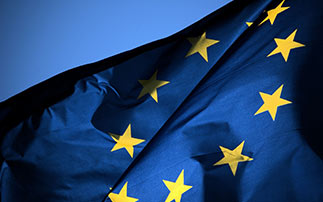In late July the European Commission adopted the “partnership agreement” with Portugal on the mobilization of the Structural and EU investment Funds for the period 2014-2020.

25 August 2021
+33(0)1 42 54 60 64 | contact@welcomeurope.com
Structural Funds in Portugal for 2014-2020
In late July the European Commission adopted the “partnership agreement” with Portugal on the mobilization of the Structural and EU investment Funds for the period 2014-2020.
Portugal is thus the 10th Member State to adopt its partnership agreement. Specifically, the partnership agreement defines the strategy to be implemented for the use of the Structural and European investment Funds. Within this document, each Member State established priorities and investment objectives for the next seven years to contribute to the objectives of the Europe 2020 strategy, namely sustainable, inclusive and smart growth.
European Structural and Investment Funds include the European Regional Development Fund (ERDF), the European Social Fund (ESF), the Cohesion Fund, the European Maritime and Fisheries Fund (EMFF), the European Agricultural Fund for Rural Development (EAFRD).
This Partnership agreement will provide the country with a total of 21.46 billion euro under the cohesion policy (including the first three funds) for the period 2014-2020.
This amount includes funding from the European territorial cooperation (Interreg) and for the youth employment initiative.
Portugal will also receive a grant of € 4.06 billion for rural development and a budget of 392 million euro will be available for the maritime sector and fishing. Most of the Portuguese territory is composed of “less developed” regions that have the possibility to benefit of three funds of the cohesion policy.
The financial breakdown is as follows:
– € 16.67 billion for less developed regions (Norte, Centro, Alentejo and Açores);
– € 257.6 million for transition regions (Algarve);
– € 1.28 billion for more developed regions (Lisboa and Madeira);
– € 2.86 billion through the Cohesion Fund;
– € 122.4 million for European Territorial Cooperation (Interreg);
– € 115.7 million special allocation for the outermost regions;
– € 160.8 million for the Youth Employment Initiative.
Of this, ESF in Portugal will represent € 7.6 billion which will help redress the social impact of the economic crisis and support a job-rich recovery.
In the framework of the previous programming period the total amount of funding for cohesion policy was almost the same and many projects have been funded, such as actions to improve urban transport systems, to expand access to broadband Internet, to invest in more than 12 200 companies, to develop systems of protection against fires and floods.
Some of the priorities for the period 2014-2020 are:
– Improvement of entrepreneurship and business innovation (development of e-economy and improvement of SMEs’ access to finance);
– Stimulate the transfer of R & D knowledge between universities and businesses, development of an innovation-friendly business environment;
– Improvement of economic competitiveness by improving the production of tradable goods and services; – Fight against unemployment, improvement of the quality of education and training, improvement of qualifications and skills of the workforce and prevention of early school leaving;
– Reduction of poverty, support for the social economy;
– Contribution to the modernization of public administration through capacity building and e-governance; – Support the transition to a low carbon and resource efficient economy.
An important novelty of the 2014-2020 programming period is the importance given to local governments within the European Union. Indeed, they will be responsible for implementing approximately 40% of all funds, against 25% for 2007-2013. Finally, in Portugal, a total of 7 regional operational programmes will be implemented and the National Operational programmes (ERDF, ESF, Cohesion fund etc..).

25 August 2021

